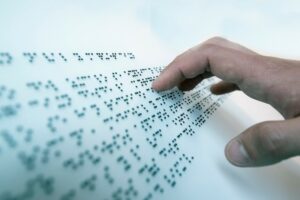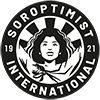 To the average person, Braille may just seem like a series of dots on a paper or any other material or surface. But, to visually impaired and blind individuals, it is more than that – it is their connection to the world, a form of communication and for gaining knowledge.
To the average person, Braille may just seem like a series of dots on a paper or any other material or surface. But, to visually impaired and blind individuals, it is more than that – it is their connection to the world, a form of communication and for gaining knowledge.
While the United Nations Observance of World Braille Day began five years ago back in 2019, this coded system for the visually impaired can be traced all the way back to 1824, when it was created by Louis Braille. Since then, it has evolved into various formats being adopted and adapted in various countries for different purposes. It is currently used by 6 million blind people around the world.
In Barbados for instance, in private settings, visually impaired people use devices with Braille to execute daily tasks such as telling the time and baking. On the national level, Braille is incorporated into the public transport system especially on bells and other end of journey signals. In the financial system, all of the recently released Polymer notes contain the raised dots to differentiate denominations. Similarly, in the UK, Braille is featured on notes as well with different denominations sized according to value.
Has it reached its point? Definitely not! We can and should do more to raise the awareness of Braille. Absolutely! Increasingly, our museums and Heritage sites have implemented Braille signposts and labels for their exhibits. Many banks, utilities and other businesses can provide statements, bills, and letters in Braille. This provides the individual with a degree of privacy and independence. Now, some restaurants and pub chains offer Braille menus.
Some of our Soroptimist clubs such as those in Perth and Scotland have been executing projects to sensitize people about Braille, even making books. But there is still significant room for more initiatives to be implemented.
What about hosting Braille reading classes for the general membership? How about even encouraging more visually impaired women to join our clubs allowing them to share their stories?
What about reaching out to the local association for people with disabilities in your area to form partnerships and boost advocacy? I am sure countless visually impaired individuals would be happy and proud to contribute to our esteemed organisation. Perhaps it could be in the form of assisting in creating messaging in Braille or audio or some other format. There are countless opportunities to assist.
It is a New year and as we strive to remain relevant and attract new members and become more inclusive, we need to consider everyone.
As cases of non-communicable diseases such as Diabetes increase globally, it must be noted there are many complications that accompany the condition. One of them is Glaucoma that can lead to blindness.
Do not let the world go dark for us or others. Speak, teach, and learn Braille.
#Soroptimists #westandupforwomenandgirls
Blog by Reanne Phillips, SI Jamestown, Barbados


